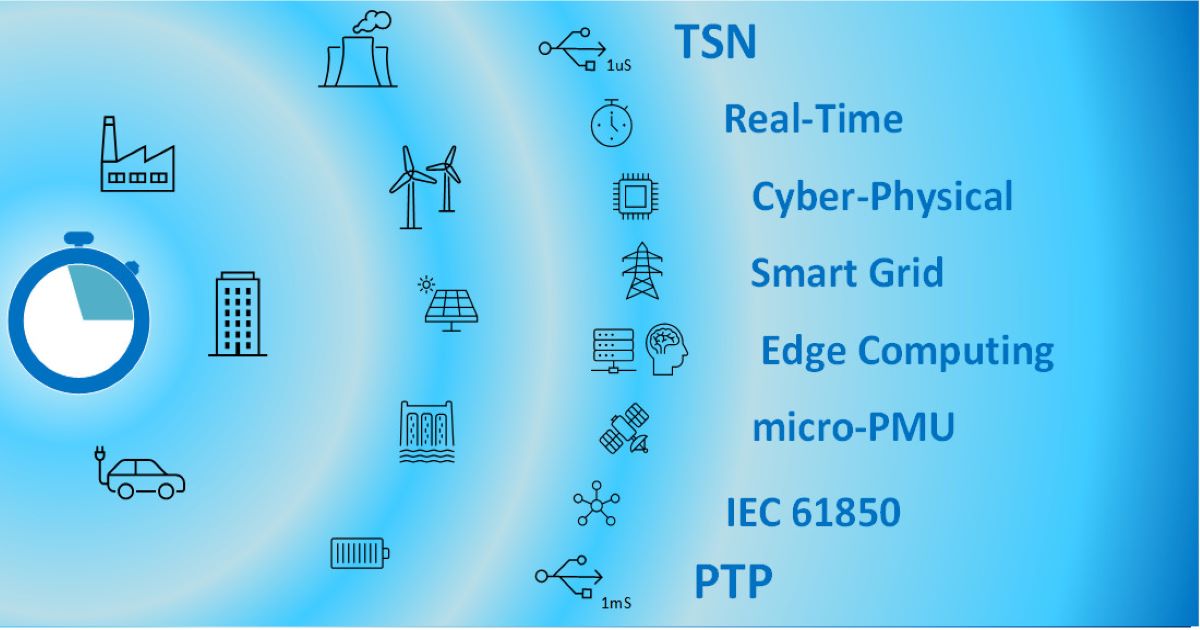- 2.5Impact Factor
- 5.5CiteScore
- 20 daysTime to First Decision
Cyber–Physical Systems in Real-Time and Edge Computing for Smart Grids
This special issue belongs to the section “Energy Science and Technology“.
Special Issue Information
Dear Colleagues,
A real-time cyber–physical system for Smart Grid (SG) must integrate and process real-time data from generation, distribution, and consumption facilities. The systems involved must have real time monitoring, communication, computing, and cloud storage capabilities.
It is important to adjust the response times of each of these stages in order to have a time resolution that guarantees rapid intervention in critical situations.
There is currently a trend towards the application of Edge Computing (EC) with the incorporation of equipment located in the same facilities as edge nodes that act in a second processing phase to contribute to the optimisation of production or for the rapid detection of abnormal operating conditions.
In SG, EC can guarantee response times in accordance with the requirements of the main international standards such as IEEE 1547.1-2005 for the interconnection of distributed resources, IEEE 929-2000 and IEC 61727-2004 for the optimal interconnection of photovoltaics in residential sectors, and DIN VDE V 0126-1-1:2012 for the disconnection of the generation grid.
In this context, it is advisable to use measurement systems such as micro-phasor measurement units and power quality monitoring, which enable generating edge databases with a higher temporal resolution and with storage in an edge–cloud framework. EC requires that storage, processing, and computing take place at the edge of the network. In this framework, techniques to improve the captures sync and data sync are of relevance. Therefore, it is interesting to contribute to SG with EC techniques to manage critical events and the bidirectional control of energy flow, and to combine advanced cloud analytics techniques with artificial intelligence, machine learning, and deep learning.
For this reason, this Special Issue is dedicated to research that may represent an advance in any of the proposed challenges such as the improvement of response times with edge computing, cloud analytics techniques for the optimisation of production, techniques that allow for the development of edge–grid applications for consumption close to the generation site, the adoption of measures to guarantee response times according to standards, the application of transmission techniques with protocols such as IEC 61850 to facilitate the flow of information in real time, and all kinds of techniques that contribute to the coordination of renewable energy generation plants.
Prof. Dr. Víctor Pallarés-López
Prof. Dr. Miguel González-Redondo
Prof. Dr. Rafael Real-Calvo
Guest Editors
Manuscript Submission Information
Manuscripts should be submitted online at www.mdpi.com by registering and logging in to this website. Once you are registered, click here to go to the submission form. Manuscripts can be submitted until the deadline. All submissions that pass pre-check are peer-reviewed. Accepted papers will be published continuously in the journal (as soon as accepted) and will be listed together on the special issue website. Research articles, review articles as well as short communications are invited. For planned papers, a title and short abstract (about 250 words) can be sent to the Editorial Office for assessment.
Submitted manuscripts should not have been published previously, nor be under consideration for publication elsewhere (except conference proceedings papers). All manuscripts are thoroughly refereed through a single-blind peer-review process. A guide for authors and other relevant information for submission of manuscripts is available on the Instructions for Authors page. Applied Sciences is an international peer-reviewed open access semimonthly journal published by MDPI.
Please visit the Instructions for Authors page before submitting a manuscript. The Article Processing Charge (APC) for publication in this open access journal is 2400 CHF (Swiss Francs). Submitted papers should be well formatted and use good English. Authors may use MDPI's English editing service prior to publication or during author revisions.
Keywords
- monitoring and communication in Smart Grid
- Edge Computing for Smart Grid
- edge–cloud framework
- cloud analytic techniques for Smart Grid
- real–time embedded systems
- synchronized measurements with micro-PMU
- failure detection
- power quality and grid impact
- applications of edge–grid
- Sync Architecture for Smart Grid

Benefits of Publishing in a Special Issue
- Ease of navigation: Grouping papers by topic helps scholars navigate broad scope journals more efficiently.
- Greater discoverability: Special Issues support the reach and impact of scientific research. Articles in Special Issues are more discoverable and cited more frequently.
- Expansion of research network: Special Issues facilitate connections among authors, fostering scientific collaborations.
- External promotion: Articles in Special Issues are often promoted through the journal's social media, increasing their visibility.
- e-Book format: Special Issues with more than 10 articles can be published as dedicated e-books, ensuring wide and rapid dissemination.

